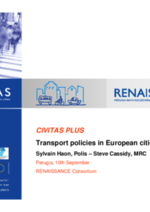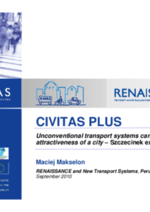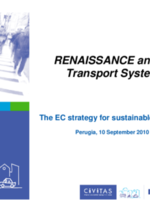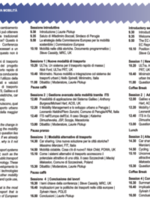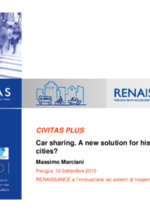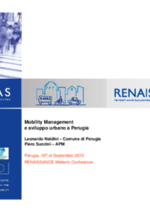To what extent can new modes of transport achieve the change in the mobility culture in Europe that the European Union desires? Or can we succeed in changing the mobility culture through improving current modes, such as by utilising Intelligent Transport Systems, new energy sources or operating regimes? This basic question lay at the heart of the 3rd RENAISSANCE conference. If we already possess the tools for a change in mobility culture, why is it not happening?
The conference brought together leading experts in transport technology, ITS and travel behaviour; in addition to representatives of the European Commission DG MOVE and the POLIS city network. The conference compared leading edge primary transport systems being assessed within the RENAISSANCE project; such as the potential of personal rapid transit, driverless guided public transport systems and virtual travel options using internet technology.
These systems were then assessed alongside the latest developments to improve the efficiency of current modes using ITS technologies such as the Galileo applications and other mobility management strategies - electric cycling, shared car and cycle use, water transport options and so on.
The conference provided a forum for city transport professionals to assess and discuss these options. In a climate of increasing economic stringency, what is the most effective path to achieve sustainable urban transport that is acceptable to the daily travel patterns of a majority of European citizens?
Authors: Holding Graz Linien, Stefania Papa
